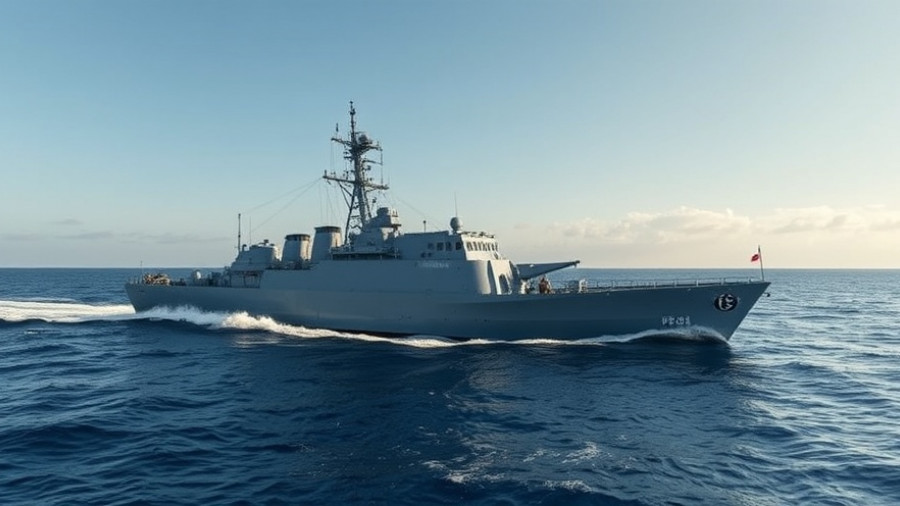
UK Navy’s Humanitarian Response: A Lifeline for Jamaica
The aftermath of Hurricane Melissa has left communities in Jamaica grappling with devastation and loss. In an impressive display of solidarity and commitment, the UK government has deployed HMS Trent, an Offshore Patrol Vessel, to provide targeted humanitarian support. With a strong crew of 75, the ship is equipped with engineers ready to assist in vital infrastructure repairs and assessments, showing how international cooperation can bring hope in times of crisis.
British Support Aimed at Immediate Recovery
In addition to the physical presence of HMS Trent, the UK government announced £7.5 million in emergency funding for immediate humanitarian needs, which includes shelter kits, water filters, and solar-powered lanterns to aid those without power. This swift action illustrates the UK's proactive stance in disaster response, especially as Hurricane Melissa marked the strongest storm on record to impact Jamaica.
The Bigger Picture: Ongoing Disaster Preparedness
HMS Trent’s deployment is not entirely unexpected—British forces have been stationed in the Caribbean as part of an ongoing readiness strategy to support the region during hurricane season. This action highlights a broader commitment to disaster preparedness and recovery, with the Royal Navy playing a dual role in counter-drug operations and humanitarian assistance. It emphasizes the importance of maintaining a robust presence in areas prone to natural disasters.
Technology at Work in Recovery Efforts
What makes HMS Trent particularly effective in this humanitarian role is its advanced technological capabilities. The ship is equipped with drones that can conduct aerial reconnaissance of damaged areas, providing valuable data to assess the extent of the destruction and formulate recovery strategies. Such technology not only speeds up the assessment process but also enhances the safety and efficiency of ground teams deployed to affected sites.
Building Resilience: A Community Perspective
For the affected communities in Jamaica, the arrival of HMS Trent is more than just immediate relief; it symbolizes resilience and partnership amid adversity. As local authorities and British forces collaborate closely, the process of rebuilding will require a concerted effort that combines technical expertise with community engagement. The presence of foreign aid is crucial, but equally important is empowering local initiatives to foster long-term recovery and resilience.
In conclusion, as discussions about global disaster response continue to evolve, the actions taken by the UK government and the Royal Navy demonstrate that international support, coupled with strategic preparedness, can provide a significant lifeline to nations in distress.
 Add Row
Add Row  Add
Add 




Write A Comment